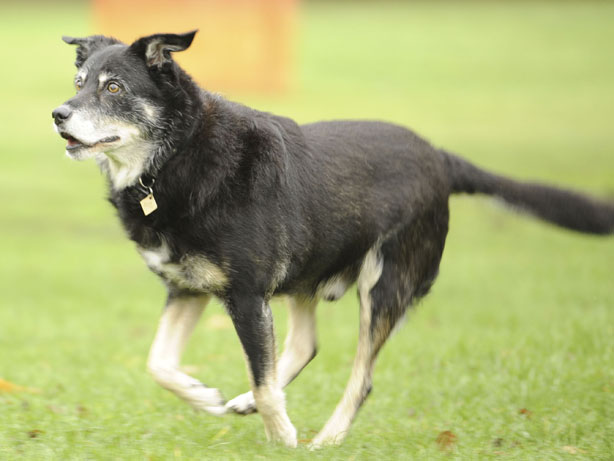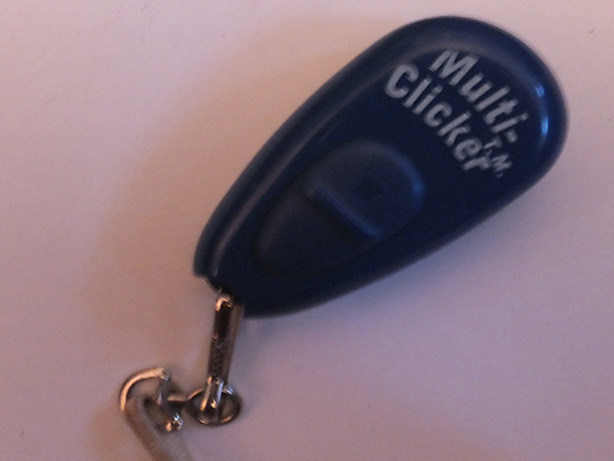
Breakthrough Not To Be Sniffed At
 Further progress is being made that may enable the world to return to some semblance of normality as sniffer dogs trained to alert on the SARS-Cov-2 virus work at Helsinki airport.
Further progress is being made that may enable the world to return to some semblance of normality as sniffer dogs trained to alert on the SARS-Cov-2 virus work at Helsinki airport.
The dogs do not make direct contact with travellers but alert on wipes that have been used to swab their neck. The dogs take about 10 seconds to work their way through the scent options and travellers who’s sample is deemed positive are invited to take a free test.
Accuracy is extremely high. A pilot study showed that dogs alerted 94% correctly when presented with 1,102 random samples. They are also able to make accurate detection in people who are asymptomatic.
Of course, it is only properly regulated follow-up that will make this a game-changer for global travel, but once again, dogs really are man’s best friend.
Man Bites Dog
 Fatal dog attacks are very rare; they are also preventable. Three people died in the UK in 2019 as a result of an incident involving a dog, two more than in 2018. That is similar to the number of people killed by lightening in the UK.
Fatal dog attacks are very rare; they are also preventable. Three people died in the UK in 2019 as a result of an incident involving a dog, two more than in 2018. That is similar to the number of people killed by lightening in the UK.
Just as there are many precautions that can be taken to avoid being struck by lightening, there are many ways that the latest fatal dog attack should have been avoided.
Many people underestimate how much work is involved in rearing a puppy and trying to do so whilst dealing with a newborn baby (or indeed older children) at best leads to a lot of dogs being neglected and then re-homed and in the case of yesterday’s incident, the probable death of a dog through no fault of its own.
Again, we are unlikely to know exactly how this dog had been reared and handled, but it is not hard to guess, and yet again, the headlines will be forgotten and lessons unlearned until the next dog pays the price.
Puppy Chow
 The body of an almost perfectly preserved puppy, estimated to be 14,000 years old, has been discovered in Tumat (Тумат), Siberia.
The body of an almost perfectly preserved puppy, estimated to be 14,000 years old, has been discovered in Tumat (Тумат), Siberia.
The permafrost has preserved nose, fur and teeth and sufficient DNA to run tests. However, it seems that this pup may have been a proto-dog as it was not possible to distinguish domestic dog genes from wolf genes.
This is the second ancient pup found in Siberia recently after an 18,000 year old pup was found near Yakutsk (Якутск), in eastern Siberia. The scientists (aptly) named him Dogor – Yakutian for “friend”.
What makes the latest find remarkable is that a pelt-covered fragment of tissue was also preserved inside the puppy’s stomach. The yellow pelt initially suggested that it was a lion, but DNA tests proved it to be an almost perfect match for a woolly rhinoceros. This species became extinct at about the same time that the puppy ate it. The puppy died shortly afterward which is why the pelt had not been digested.
It remains a mystery as to what killed the woolly rhino and the puppy.
Walking The Dog
 As many canine professionals anticipate a spate of abandoned “lockdown” animals with schools, colleges and workplaces re-opening, news from Europe heralds new legislation in an attempt to improve welfare.
As many canine professionals anticipate a spate of abandoned “lockdown” animals with schools, colleges and workplaces re-opening, news from Europe heralds new legislation in an attempt to improve welfare.
Germany is introducing a bill that, if passed would be implemented on a state-wide basis including the following provisions:
- Dogs must be walked twice a day for a minimum of one hour in total
- Dogs must not be chained for long periods of time
- Dogs must not be left alone for an entire day
- Breeders will be restricted to a maximum of three litters at any given time
- Puppies will have to spend a minimum of four hours a day in human company
- Ear and tail docking will be prohibited for show dogs
- Show dogs must display “species appropriate” behaviour.
All very admirable, but the agriculture ministry has already stated that it is very unlikely that individual dog owners will be policed and that an emphasis will be placed on welfare in kennels. Even if Germany puts considerably more resources into this legislation once passed than we have in the UK with similar legislation, it seems unlikely to make substantial difference.
Meanwhile, France is also anticipating a worsening of the situation that sees between 100,000 and 200,000 companion animals being abandoned annually. 60% of abandonments happen during summer holidays. In the last annual Dogs Trust Stray survey, 69,621 stray dogs were handled by local authorities in the UK, an increase of 13,578 on the previous year.
Toulouse MP Corinne Vignon has introduced a bill in he French parliament aiming to make it harder to buy companion animals and to facilitate tracing owners who mistreat or abandon them. It includes provision making identification mandatory an raise the minimum age limit for purchase
The bill would introduce compulsory tagging, as well as raise the minimum age limit of buyers. The bill has cross-party support and is expected to be passed before the endow the year.
France has clearer legislation than the UK when it comes to breeding and selling dogs. All matings have to be declared, with dogs either registered as pedigrees with the French KC or as “types”. It is possible to register a pedigree dog after puppyhood with confirmation from an expert judge and proof of testing for heritable diseases and sociability, behaviour or aptitude. However, breed registers have been closed for several breeds, including the following since 1978: German and Belgian shepherds, Dobermann pinschers, boxers, fox terriers, dachshunds, springer, cocker and American spaniels and poodles.
It remains to be seen if legislation in either country will stem the tide of back street breeders, puppy farms and illegal imports and sales. For the sake of dogs everywhere, let us hope that a solution is found soon.
Read The Licence Or Just Tick The Box?
 The RSPCA has been detailing cases of abuse and calling for licensing of dog walkers and trainers. All very admirable but it does not go far enough and will not address the issues of concern.
The RSPCA has been detailing cases of abuse and calling for licensing of dog walkers and trainers. All very admirable but it does not go far enough and will not address the issues of concern.
An opportunity was missed with the revision of licensing legislation in October 2018 when behaviourists trainers, groomers and walkers could have been licensed, but in practice little has changed anyway.
Not only were no resources put into publicising and policing those changes, dogs are being bred and boarded in their millions with little or no regard to the law. Few owners are aware that licensing is required and many don’t care when they are alerted, preferring a quick, easy purchase and a convenient, cheap option for outsourcing the care of their dog.
Licences are administered by local authorities, all of which are cash-strapped and under-resourced.
The truth is, most people want instant gratification and are not prepared to exercise due diligence when purchasing a dog let alone wait for a lengthy period for a dog from a responsible breeder. Many fashionable crosses would never be bred by responsible breeders because of poor health implications. Those breeders remain unlicensed and of course have much lower costs than licensed breeders whilst charging up to 5 times as much per dog sold. Far too many people outsource most of the care of their dog to walkers and boarders and few undertake any training or just attend a brief puppy course. Those who are prepared to pay a suitable fee for a qualified professional are few and far between so there will always be a market for unlicensed, unqualified breeders, trainers, groomers and dog walkers.
Some professional bodies allow “grandfather rights” and take in members without the requirement of being assessed. Until that issue is addressed, trainers for instance, may still have the kudos of the letters after their name without needing to prove that they abide by the codes of conduct.
There are more than 50 statues in the UK that mention dogs. It only takes a short walk along any busy street or park to see how many of those are being broken with impunity. One more will make little difference unless a significant amount is spent in owner education and policing. That is not likely to happen any time soon, so simply adding more legislation could actually provide a cover for the very abuse that it is trying to prevent as well as adding yet another financial burden on properly accredited professionals.
Hot Diggity Dog
 As temperatures soar across the UK and Europe, the risk is high that vets will see an influx of dogs suffering from heat-related problems.
As temperatures soar across the UK and Europe, the risk is high that vets will see an influx of dogs suffering from heat-related problems.
With temperatures in the 30s this week, people are still walking dogs and some are even allowing dogs to run after balls or forcing them to run alongside as they puff their way along red-hot tarmac.
Most owners are sensible and take better care of their dogs, but it may still come as a shock to realise that dogs have died of heat-related illness in the UK in far lower temperatures.
New research undertaken on a sample of 1,222 dogs from veterinary records found that, in 2006, dogs became ill and died in the UK due to overheating in every month of the year, with cases peaking in July.
Just under 75% of the dogs became over heated due to over-exertion. 5.2% were due to being left in a hot car and 12.9% in another environment that was too hot.
Young male dogs had greater odds of exertional heat‐related illness. Older dogs and dogs with compromised breathing had the greatest odds of environmental heat‐related illness. Brachycephalic dogs had greater odds of all types of heat‐related illness than mesocephalic dogs. Obesity is a significant risk factor in heat-related death; many brachycephalic dogs are also obese, and the extreme prevalence of heart disease in breeds such as Cavalier King Charles spaniels also compromises breathing and cooling. Dogs are just as likely to die from heat-related over-exertion as being left in a hot car.
Meanwhile, the Veterinary Poisons Information Service warns that vets have seen dogs suffering from gut obstruction due to chewing and ingesting cool mats.
Keep your dog cool and keep your dog safe.
Dog-gone
 The latest figures released by insurer Direct Line report that dog thefts in England and Wales fell by 23% in 2019 (approximately 600 fewer dogs being stolen than in 2018).
The latest figures released by insurer Direct Line report that dog thefts in England and Wales fell by 23% in 2019 (approximately 600 fewer dogs being stolen than in 2018).
However, there has also been a reported 65% increase in the number of dogs reported to charity DogLost as being stolen between March 23rd and June 1st, 2020 as the Covid-19 lockdown began. There also seem to have been clusters of thefts, notably in East Anglia where thieves are reported to have left chalk marks to identify houses with dogs. Although this has not been confirmed, it was also reported in 2018 in Scotland.
Whether chalk marks are being used or not, it is certain that dogs are stolen every day, mostly for re-sale or for use as breeding dogs in puppy farms. Direct Line report that just 22% of stolen dogs were returned to their owners in 2019 and this number seems to be falling.
The honest truth is that owners want dogs in hurry and will buy from websites and other dubious sources without making any checks. Although a campaign was instigated to get vets to check chips after the daughter of the late Bruce Forsyth had two dogs stolen. However, vets have a primary duty to care for dogs, not to act as an unpaid police force. There are simply too few resources put into Dog Wardens to police even the microchipping law systematically and effectively.
There are simple precautions that can be taken to prevent theft:
- Do not leave dogs unattended in cars or outside shops
- Train good recall and pay attention to your dog when out on walks
- Do not leave dogs unattended in gardens or kennels
- Keep your microchip database up to date.
Qui eripuit canis, qui eripuit?
 A story broke today that a St Bernard dog, a breed famed for mountain rescue, herself needed rescuing from Scafell Pike.
A story broke today that a St Bernard dog, a breed famed for mountain rescue, herself needed rescuing from Scafell Pike.
The tone of the articles was relatively light-hearted but the operation required 16 members of the Wasdale Mountain Rescue team to administer pain relief then carry a dog weighing 55kg for five hours over rough terrain, including negotiating a waterfall.
The dog is 4 years old. Young for most breeds but in the giant breeds with a life-expectancy that rarely breeches double figures, middle aged. A 2014 UKKC breed health survey of 65 St Bernards with a median age of 3 years found that the majority of the dogs were affected by at least one condition. There were 77 incidents of conditions overall, with a median age of onset of just 18 months. Hip dysplasia was the third most commonly reported problem. Reportedly, the dog taken off Scafell Pike was showing signs of pain and refusing to walk. Hardly surprising.
There are often people who risk rescuers’ lives by going into potentially dangerous environments unprepared, but subjecting such a dog to England’s highest mountain beggars belief.
It wasn’t always like this of course. St Bernard dogs have not been used for mountain rescue since 1955, not least because crossing with Newfoundlands in the mid-19thC and closed stud books made them unfit for purpose. The dogs in the image on the right were the St Bernards of 1929. Tragic hardly covers it.
Sticking In The Throat
 Hypothyroidism (underactive thyroid gland) is a common endocrine disorder in dogs whereas hyperthyroidism (overactive thyroid gland) is a rare disease.
Hypothyroidism (underactive thyroid gland) is a common endocrine disorder in dogs whereas hyperthyroidism (overactive thyroid gland) is a rare disease.
A retrospective study of dogs diagnosed with hypothyroidism found one thing that all the sufferers had in common: they were fed a raw diet. The severity of the signs with which the dogs presented varied but all recovered when the raw does was replaced with a complete, commercial, dry diet.
The dogs became ill with excess thyroid hormone because the raw diets included necks and tracheas with the thyroid gland still attached. Thyroid hormones are not destroyed by stomach acids and so are absorbed into the dog’s body.
Of course, it is possible to argue that, as long as raw food is guaranteed not to contain thyroid gland tissue, it could still be fed safely, but then there is the problem of the salmonella, e, coli, campylobacter, listeria…
Covid Cons
 Just as the SARS COV-2 virus exploits weaknesses in its human hosts in order to reproduce, conmen exploit weakness, especially in times of crisis.
Just as the SARS COV-2 virus exploits weaknesses in its human hosts in order to reproduce, conmen exploit weakness, especially in times of crisis.
One of the major problems in improving canine welfare is that purchasers are still demanding that dogs be sold as “off the shelf” commodities. Puppy farming would stop tomorrow, “rescue” centres would be cleared of dogs and border control would not have to spend time trying to stop van loads of sickly puppies entering the country if only people researched and considered their purchases and recognised that it can take months and sometimes years to get a heathy, well-bred dog. Local authorities would be spared the cost of taking nearly 60,000 abandoned dogs off the streets annually and could spend those resources educating and assisting canine professionals and owners instead.
The vast majority of dogs bought and sold in the UK are either trafficked in or bought or recycled from puppy farms and unlicensed breeders. Complaints from potential owners that they are being defrauded and ripped off are coming thick and fast. Badly and illegally bred dogs are being parcelled out for thousands of pounds apiece to fuel the demand for a “lockdown” pet. Many of those who actually part with money and receive a dog may then face huge vet bills and many dogs and cats are expected to be dumped within weeks or months.
Then of course, the whole nightmare begins again for the poor animal as new owners, thinking erroneously that it is better to “rescue” their new pet rather than buy from a reputable breeder make room for more and have to deal with the consequences of bringing a traumatised animal into their home.
There is a very easy way to stop this. Plan to wait up to 2 years to get a fully health-tested dog, do lots of research beforehand, don’t buy animals advertised online and don’t part with stupid amounts of money.
If there is no one to exploit, conmen will go elsewhere. It’s up to you.




